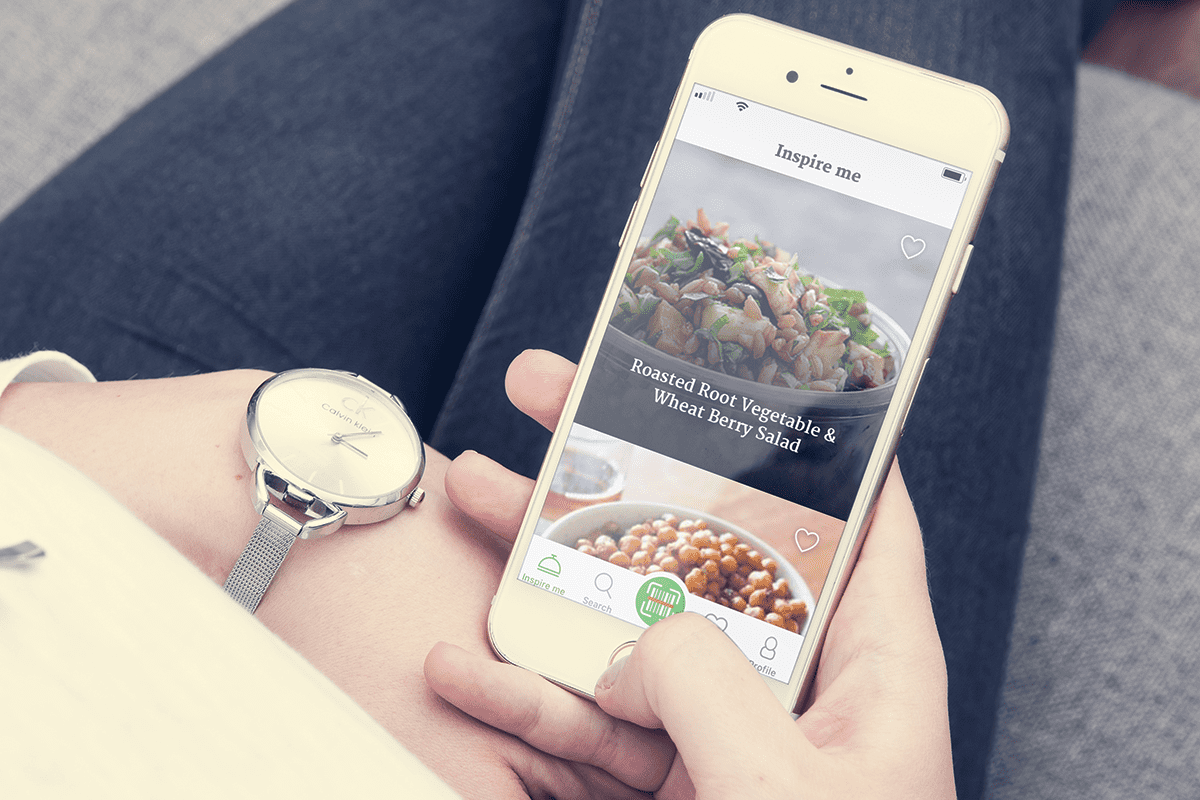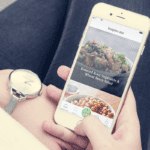When retailers help their customers find just the item they need, they’re more likely to see them return to buy again. Chloe Rigby reports on how start-up Spoon Guru helps supermarket shoppers identify the foods that fit sometimes exacting dietary requirements.
It’s hard enough for consumers to find the product they want to buy from a range of thousands of items at the best of times. When it comes to identifying foods that are safe to eat for someone with a nut allergy or gluten intolerance or are the right foods for people following religions where certain foods are proscribed, it’s even more important to get it right.
That was a problem that Markus Stripf, now chief executive of Spoon Guru, saw on his own trips to the supermarket. His wife has a number of food allergies and he thought there must be an app that would identify the foods that she could eat. When he couldn’t find one, he and his co-founders, Tim Allen and Simon O’Regan, set about developing their own.
Last year the Spoon Guru technology was adopted by Tesco, first made available via the supermarket’s mobile app and then through its desktop site. Now, when Tesco shoppers buy online from their mobile phone they can carry out their food searches using filters including intolerances, whether that’s to nuts, lactose, or other substances, and by dietary requirements such as vegetarian, vegan, low fat or low salt.
At the time that Alessandra Bellini, Tesco chief customer officer, announced the partnership, she said: “We want to make it easy for customers to shop with us online and help them make the right food choices, so we’re really excited to be working with Spoon Guru.
Adding their technology to tesco.com is another little help or customers, and we hope it will make a big difference to those with specific diets and tastes.” More recently Tesco cited the partnership as an example as an example of innovation and of how it was improving the customer experience in its Q1 2018 financial results.
Identifying the need
More than half (54%) of shoppers have dietary requirements, according to Spoon Guru’s data, and even those who don’t have specific foods they cannot eat have foods they’d rather eat, or not eat. “When we started out,” says Stripf, speaking to InternetRetailing at IRX 2018, “we assumed there were segments of people with different needs – vegetarians over here, low sugar over there, an allergy group over there. But what we’re seeing now is people have preferences.
The average shopper has 3.3 food preferences. We started not only to recognise that but to bring out the fact that everyone is unique and totally individual, and you need to provide hyper-personalised services as a retailer down to a segment of one. As a customer I’m happy to give you my data, I don’t have a problem with you following my clicks when I’m on your website, but if I’ve told you I’m a vegetarian don’t put a Christmas turkey in front of me.” That’s made more urgent by Forbes figures, cited by Spoon Guru, that suggest 57% say they’ll shop elsewhere if they can’t find the food that meet their needs.
Stripf says Spoon Guru focuses on getting the right results for the extreme cases, such as families with three children who each have different allergies and have to use different shopping trollies for each in order to avoid cross-contamination. Getting it right for them, says Stripf, means that the company will also get it right for the majority, whose needs are less exacting. At the same time, Spoon Guru wanted to make supermarket shopping easier for those who want to invite people with specific dietary requirements to dinner.
“It can be incredibly frustrating and there’s even a social impact sometimes, if you stop getting invitations for dinner parties and so on. We knew that and we also knew that there are phenomenal products out there. If you go to industry conferences you can find a wealth of fantastic products out there, no-sugar ice-cream, vegan wines, but what’s missing is the bit in between. Nobody seemed to be able to connect the dots. That’s what we’ve tried to do.”
For Spoon Guru the answer has come in using machine-learning technology, a subset of artificial intelligence (AI), to make specific recommendations that meet individual needs. “AI can impact the entire shopping experience, not just online,” says Stripf. “Consumers’ needs are getting increasingly complex.”
Stripf sees the use of the technology as a way to make access to the right foods more equal. “As technologists, what we care about is where are people struggling, how can we help make the whole thing easier and democratise the whole process.
Why is it acceptable that as soon as you have an allergy your household spending goes up by at least 10% and the time taken to shop goes up by 30%. It’s unacceptable when there’s a lot of gluten-free stuff out there. We analysed 150,000 products in the UK market and found that 90,000 are gluten-free.” He says that the technology also addresses the customer’s demand for convenience.
Tesco identified its own need when it saw that shoppers were using dietary keywords to search, and it found it could not respond to that demand. “They knew the products,” says Stripf, “they just couldn’t find them.”
How it works
Spoon Guru uses a machine-learning algorithm, part of its food search and discovery platform, to analyse the ingredients of a food, as listed on the product label. “We take in Tesco’s entire product catalogue and run it through a very sophisticated algorithm which is AI/machine-learning based,” says Stripf.
“We crunch more than 14 billion data points, we run it and then we spit out a much more optimised product.” A can of tomatoes, for example, might be classified using around 128 dietary tags, identifying it as halal, low sugar, low salt, to name but a few.
In the case of Tesco, the Spoon Guru algorithm is applied to the retailer’s entire food catalogue, and works across channels. A barcode feature enables shoppers to scan items in the store to check if they meet their requirements, while Spoon Guru can also be used via Alexa to enable shoppers to order foods that meet their dietary requirements using voice.
This is important, says Stripf, since research suggests that 60% of millennials now only use voice for search. In the future he envisages shoppers being able to find an item and then have it delivered through integration to a delivery service.
Spoon Guru also has its own app that enables shoppers to find the foods from a range of retailers and brands that meet their needs, and it says it has also worked with the NHS and Public Health England to see how its could help people diagnosed with intolerances or conditions such as diabetes to find foods that suit them. “There’s an obvious opportunity to help health professionals provide a better service,” says Stripf.
“It’s such a frustrating experience. Dieticians and nutritionists tell us as soon as they have diagnosed someone there’s not much they can do, they send them away, wish them luck with Google and give them a leaflet. But it’s not really, in this day and age, when technology’s so easily available to help, acceptable that people should have to go to find this information themselves.”
Trusting technology
Stripf says Spoon Guru’s analysis suggests that its algorithm is more accurate than an individual health professional, and that its output is equivalent to 10,000 qualified health staff. But it’s important, he says that there is still a human in the loop and at Spoon Guru data scientists work alongside nutritionists.
“When the machine isn’t entirely sure there’s still an escalation policy and a query escalates to a health professional to make a judgement call.” This results, he says, in “super accurate services to the end consumer, which is fundamentally what everyone wants. You don’t want a child to end up in hospital because there’s an error.”
That’s particularly important, since people using the app will be likely to trust its findings more than they trust their own judgement. Tesco communicates that trustworthiness through another merchandising, showing customers results that are labelled as Spoon Guru results. “That was a very important point,” says Stripf. “They wanted to show customers that they haven’t had a go at it themselves but are working with a reputable service provider who applies the highest standards to ensure if you are a coeliac you’re going to be fine.
We’ve been exposed to millions and millions of customers searches at Tesco since we launched and there have been zero errors, zero complaints. It’s very rewarding and always a testament to what we set out to do: to build a reliable technology solution that addresses a real world problem.”






